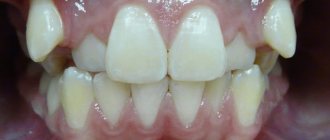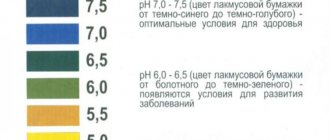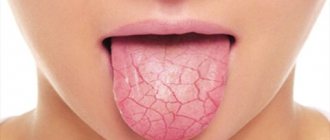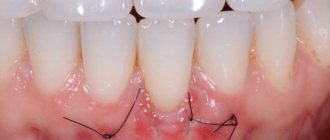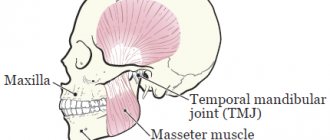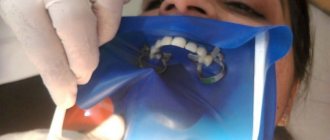Content
- Diagnosis of taste disorders in children
- Causes of taste disorders in children
Taste plays a huge role in a child’s life. They are responsible for the sensitive papillae, which are located on the surface of the tongue.
The gustatory system is closely related to the sense of smell. When a child’s taste is impaired, the sense of smell usually also suffers. Source: Kotova I.B., Kanarkevich O.S. Psychology of taste and perception // Humanization of education
By the time of birth, the baby’s peripheral part of the taste analyzer is already well developed. A newborn's taste buds are located on a wider surface than those of an adult. In addition to the tongue and the posterior wall of the nasopharynx, they are located on the inner surface of the cheeks, hard palate, and mucous membrane of the lips. A baby has a higher threshold of taste sensations than an adult. When introducing unfamiliar food, a child may refuse to eat due to unusual sensations. At the age of two months, children already distinguish 4 basic tastes, and a three-month-old baby is able to distinguish the concentrations of taste stimuli. As children grow, they learn to analyze nuances of taste more subtly.
Connection with COVID-19
Coronavirus affects not only the respiratory organs, but also other body systems, in particular the central nervous system. The neurotropic effect of the virus explains the damage to the center responsible for the perception of taste and olfactory sensations. Violations are detected in every fourth person who has recovered from coronavirus infection. At risk are patients who, during their illness, suffered from anosmia and agesia (complete or almost complete absence of smells and tastes).
On average, false sensations occur 4-5 months after recovery. Scientists do not yet have enough data to form a scientifically based opinion on this issue, but experts in the field of neurology suggest that the unpleasant effect may be associated with the gradual restoration of sensitive nerve trunks previously damaged by viruses.
Diagnosis of taste disorders in children
If you suspect a taste disorder, you should contact a specialist. Parents should be alerted by the refusal of familiar and favorite foods, and at a more conscious age, by the child’s complaints. Also, the baby may begin to eat things that are not intended for this (it should be noted that at a certain age children “put everything in their mouths” in order to explore the world around them, and this is absolutely normal).
Diagnosing taste disorders in preschool children is quite difficult, since children cannot always clearly describe their sensations. During the examination, the corresponding side of the tongue is moistened alternately with a sweet, sour and bitter solution using pipettes. After each session, rinse your mouth thoroughly. In infants, the doctor pays attention to the general motor and facial reaction. Children over two years old can most often consciously talk about their feelings. Source: E.V. Pavlovskaya Selective appetite in children // Issues of modern pediatrics / 2013/ Volume 12/ No. 6
About hallucinations
Gustatory hallucinations are false sensations of taste. Appear regardless of food intake. A person can feel the sickly sweet taste of ordinary tap water, feel that any food “tastes” burnt, unbearably bitter or astringent. A person does not know how to get rid of constant unpleasant sensations. The inability to distinguish the taste of food and strange signals from the sensory organs lead to a decrease or loss of appetite.
Olfactory hallucinations after coronavirus usually occur simultaneously with taste ones. They often come to the fore. They can persist for several days in a row, become unbearable, and cause nausea. The two listed types of hallucinations, combined with a weakening of the body after Covid, worsen the condition of the nervous system and slow down recovery.
Causes of taste disorders in children
Loss or distortion of taste in a child can be due to various reasons.
- Colds, flu, ARVI. Often, after suffering from illnesses, a child, against the background of a rise in temperature and general weakness, not only temporarily loses his appetite, but also his sense of taste. This is due to swelling of the nasopharyngeal area and the presence of a huge number of pathogenic bacteria in it. This process is reversible, and sensations are quickly restored in full. If parents notice that the child’s taste perception is not restored after an illness, this is a reason to consult a doctor. Source: https://articles.komarovskiy.net/ya-kushat-ne-xochu.html E.O. Komarovsky I don’t want to eat... 01/18/2007
- Candidiasis, or thrush , which affects the mucous membranes of the mouth. It is a fairly common disease in children. The causative agent is a fungus. A white coating appears on the tongue, and the child feels a burning sensation in the mouth. If you consult a doctor in a timely manner, the prognosis is quite favorable.
- Damage to the facial nerve. This disease causes complete or partial paralysis of the facial muscles, as well as loss of taste at the tip of the tongue. There is increased salivation and lacrimation.
- Traumatic brain injury. If a child falls and hits his head before the onset of taste disturbances, this is a serious reason to see a doctor. When the meninges are damaged, the child can distinguish basic tastes, but is not able to differentiate their complex combinations.
- The so-called geographic tongue is an inflammation of the papillae, which leads to the appearance of spots on the tongue that resemble a map.
- Cancers of the oral cavity. One of the early symptoms of a tumor in the tissues of the child’s oral cavity may be first a distortion and then a complete loss of taste sensations, therefore, if there is the slightest disturbance, you should not treat it yourself, but rather show the baby to a pediatrician as soon as possible. The doctor will prescribe a set of tests and, based on their results, refer you to a specialized specialist.
- Acute viral hepatitis. One of the symptoms of “jaundice” is a distortion of taste perception.
- Sjögren's syndrome. This disease is genetic in nature.
- Lack of B vitamins and zinc in the child’s body .
- Taking certain medications. After stopping the medication, the taste is completely restored.
Medical specialists will provide competent assistance to your child with taste disorders. With us you can quickly undergo all the necessary examinations and begin treatment.
Sources:
- Kotova I.B., Kanarkevich O.S. Psychology of taste sensations and perception // Humanization of education
- E.V. Pavlovskaya. Selective appetite in children // Issues of modern pediatrics / 2013/ Volume 12/ No. 6
- https://articles.komarovskiy.net/ya-kushat-ne-xochu.html E.O. Komarovsky. I don’t want to eat... 01/18/2007
The information in this article is provided for reference purposes and does not replace advice from a qualified professional. Don't self-medicate! At the first signs of illness, you should consult a doctor.
About nerve restoration in simple words
Neurologists draw a parallel with the return of sensitivity after prolonged exposure to an uncomfortable position. When a person puts pressure on an arm or leg, they go numb. Then non-existent goosebumps begin to “run” along the limb. And only after this does normal sensitivity return.
The same thing happens with taste and smell. This is just an unpleasant period that needs to be lived through. True, returning to normal in the case of COVID takes much longer. It is impossible to say exactly how much yet due to the small number and short duration of observations. It takes 2 to 5 years to obtain reliable statistical information.
Most Russian researchers agree that symptoms should disappear approximately six months after illness . That is, unpleasant sensations, on average, will last from 1 to 2 months. German doctors agree with this position, but are more inclined to 2 months. Italian scientists are more pessimistic. They believe that features are fully returned after 80 days.
Prices
| Name of service (price list incomplete) | Price |
| Online opinion of a pediatrician (SPECIAL) | 0 rub. |
| Appointment (examination, consultation) with a pediatrician, primary, therapeutic and diagnostic, outpatient | 1750 rub. |
| Consultation (interpretation) with analyzes from third parties | 2250 rub. |
| Prescription of treatment regimen (for up to 1 month) | 1800 rub. |
| Consultation with a candidate of medical sciences | 2500 rub. |
What to do
The exact recipe has not yet been found; research in this area continues. According to experts in the field of sensory disorders, training will be useful. It is recommended to inhale essential oils of lemon, clove and rose daily. This will help the brain become familiar with smells again and learn to recognize them, and restoring the sense of smell will help normalize taste sensations.
It is important to maintain peace of mind, eliminate stress and not “work yourself up”, fearing that the changes will remain forever. In the vast majority of cases, everything returns to normal over time. Strong experiences can provoke a deterioration in mental state, and this will have a bad effect on well-being and on the body’s ability to heal itself. If it is difficult to independently cope with feelings about taste hallucinations after Covid, you should seek help from a psychologist or psychotherapist.
Treatment
The best and most effective method of treating a symptom is to eliminate the cause of its occurrence. If the bad taste in your mouth is caused by a dental problem, it is important to get rid of tooth decay or other diseases as soon as possible.
If an unpleasant taste occurs due to pathology of certain organs and metabolic disorders, the doctor prescribes treatment for the underlying disease.
Conservative therapy
Depending on the characteristics of the symptom, to eliminate it, the doctor may prescribe drugs from the following groups:
- antiseptics;
- antacids;
- choleretic drugs;
- hypoglycemic agents;
- antidotes and detoxification drugs.
The doctor selects treatment individually. The treatment regimen depends on the causes of the taste, its severity, concomitant diseases and other features of the clinical case.
Sometimes, to get rid of the taste in the mouth, you have to resort to medications. Photo by JESHOOTS.com: Pexels
Physiotherapy
Methods of physiotherapeutic treatment in cases of unpleasant taste in the mouth help to cope with chronic inflammatory and metabolic processes, and eliminate other symptoms of pathology.
For example, for diseases of the ENT organs, rinsing with sea salt solutions, ultrasound treatment and UV irradiation, and therapeutic inhalations are used.
Warming procedures are contraindicated for patients with acute conditions - inflammation, likelihood of bleeding, severe pain.
general characteristics
A pathological disorder of taste perception is called dysgeusia.
Such a “perversion” of taste sensations can be a sign of the development of neurological, hormonal, mental disorders and other diseases, including those caused by a deficiency of certain substances in the body. If the taste of the products remains unchanged, this diagnosis can be excluded. In this case, we are talking about the temporary persistence of an unusual taste in the mouth, and most often the problem disappears when the cause of its appearance is eliminated.
Help before diagnosis
In most cases, the following help to get rid of the symptom:
- keeping the oral cavity clean;
- regular and balanced nutrition;
- cessation of smoking, alcohol abuse;
- drink enough fluid during the day;
- moderate activity after meals.
You can temporarily remove the taste by thoroughly brushing your teeth, rinsing your mouth with water and lemon juice or baking soda, chewing gum, or special mouth fresheners.
